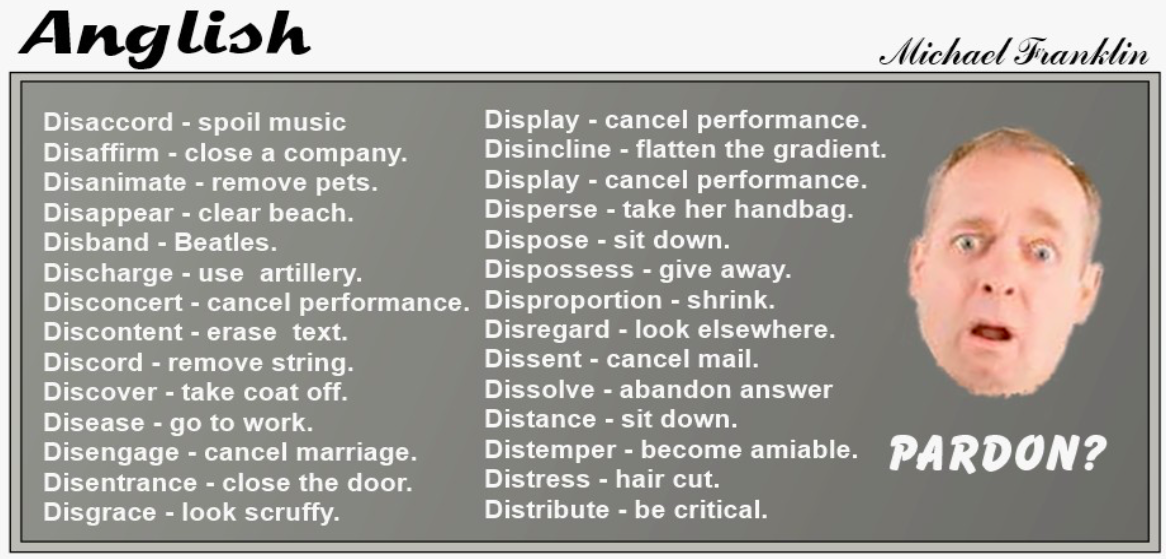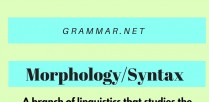Good grammar day!
Today we’re studying Prefixes.
This is a highly important subject to discover!
When we slice and dice the structure of the word, it will help us to understand its meaning better.
Not only we’ll learn the history of the language which is helpful in our studies, but we’ll grasp the prefixes, roots, suffixes. This will be of great significance to us.
We learn now with the fun of British Humor by Mike Franklin. We’re discovering the “dis-“ prefix. The article about vocabulary by our author Mike Franklin gives assistance to us in finding new meanings of the common words.
The current post will assist in better comprehension of the “dis-” prefix itself.
“Dis-“ is a Latin prefix meaning “apart,” “asunder,” “away,” “utterly,” or having a negative, reversing force.
“Di-“ is a prefix occurring in loanwords from Greek, where it meant “two,” “twice,” “double.”
If we take some words with the prefixes listed above, we’ll understand that these words have some negative meaning, won’t we?
E.g., “Disaffirm” has two parts in it: the prefix “dis” and the root word “affirm.” In such a way we guess the meaning without even trying to translate it or find its definition.
In the joke by Mike Franklin we should look for three parts of the same word: prefix “dis,” indefinite article “a,” and a noun “firm.” That’s how we can come to the thought of closing a company.
As the prefixes “dis” and “di” come from Latin and Greek, we can translate the words from other languages. You can play the translator game and try to guess the meaning of a word.
Please, notice, the history of the English (or any other) language is great, interesting and it is worth our attention.
Alas, we can’t rely on it when we want to study the language. The history is used to changing daily and what was supposed to be, for example, “a daughter” in French became “a girlfriend” later.
We are to look through some other prefixes, their history, meaning and use. We have to use the words correctly, so I shall enlarge upon the point of the prefixes in the English language later.










